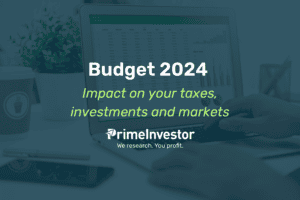The development
Franklin India AMC has announced that it is winding up 6 of its schemes – Franklin India Ultra Short Bond, Franklin India Short Term Income, Franklin India Dynamic Accrual, Franklin India Credit Risk, Franklin India Low Duration Fund and Franklin India Income Opportunities Fund. These are some of the most popular funds managed by the AMC. No new investments or redemptions will be allowed from April 24, 2020. The fund will seek to systematically liquidate its portfolio and pay the proceeds to investors in these funds over the next few months, though the fund has not specified any timeline.
What’s the issue?

Here’s what you need to understand on why this has happened.
- No, this is not a case of Franklin funds facing credit defaults on the bonds they own. There has been a severe redemption pressure on the fund and quite a few other fund houses as well in the month of March 2020. Lack of liquidity in the debt market, especially for lower rated bonds following the Covid pandemic, has made it difficult for the fund house to sell its holdings at a price that will not hurt the portfolio.
- The challenge for FT was compoundedby two factors. One, usual March-end pullouts apart, the fund had been facing redemption pressure post January due to the hits it had to take on downgraded bonds of Vodafone and Yes Bank. The second and more important reason was that FT funds held a high proportion of lower credit-rated corporate bonds which are typically illiquid. This means when there is redemption pressure, it is difficult to immediately sell such bonds at a fair price.
- The affected FT debt funds resorted to borrowings within SEBI allowed limits to meet redemption demands in the last two months but continued to see unabated pullouts. But borrowing cannot be an unlimited option as SEBI specifies a cap and borrowing costs eat into a fund’s NAV.
- If the fund house continued to sell its illiquid lower-rated bonds to pay out redemption demands, it could result in severe NAV erosion as the sales would have to happen at prices that would cause further losses to existing investors.
- The fund house could have curtailed redemptions alone, until the liquidity situation in the debt market improved.
- However, SEBI regulations permit only 10 days of suspension by an open-end fund in a 90-day period and require redemption upto Rs 2 lakh per investor to be honoured. This option was not considered viable by FT as the redemptions would still force it to sell illiquid papers at deep discount.
What about other funds from the AMC?
The other Franklin India debt funds that are not wound up are funds that have better credit quality and have better liquidity. The fact that they didn’t shut down these funds suggests that it may have sufficient liquid instruments in those schemes, to meet redemptions if any.
What does winding up mean?
- Winding up means that the fund will not accept any kind of transactions – investments or redemptions from today. It will be up to the fund to pay you back.
- It will try to sell the existing papers it holds in a phased manner either in the market when liquidity improves or wait until maturity and get the money back.
- It will repay investors in phases as and when it gets money through sale or maturity.
- Interest accrued on bonds will continue to be added to the fund NAVs and daily NAVs will be declared.
Will I get back my money?
You should get back your money. But whether you will get back your money in full at today’s NAV, depends on three things:
- One, the accrual (interest income) income the fund makes over the remaining holding period
- Two, the price at which it is able to sell its bonds if it sells in the market, when the Covid pandemic situation improves and liquidity gets better.
- Third, on the bonds it doesn’t sell, the issuers repaying the full amount on maturity.
When will I start getting back the money?
There is no timeline offered by the fund. In one of its communications, it has stated “Once the market recovers from the current Covid-19 situation, early exits via sale/prepayment will be actively explored with a view to facilitate repayment prior to the maturity of the portfolio investments.”
Basically, you will get your money in full when the last bond held by each fund is sold or matures. The average maturity of these funds provide a rough indicator of the timeline by which you can expect to get back the money, whether in part or in full.
For example, funds such as the Franklin India Ultra Short Bond have a maturity of less than a year (0.62 years), while those such as Franklin India Credit Risk have an average maturity of 3 years.
What is our take on the winding up?
Under the current circumstances, the only way for FT to increase the chances of returning the money due to you without eroding your NAV drastically, was through this phased winding up. But having said this, FT has compromised retail investor interests by holding such a high proportion of lower rated bonds, known to be illiquid, in funds labelled as ‘low duration, ‘ultra-short’, ‘short duration’ etc which are preferred by risk-averse investors seeking quick liquidity.
Immediate liquidity is one of the core promises of an open end fund and FT has been forced to backtrack on it.
Any fund house that has illiquid papers in liquid, low duration or ultra short term debt funds puts its investors under risk. This is something that the regulator too needs to take a re-look at, for lower duration funds. That is why our ratings do penalise such credit holding.
Please stay tuned for the rest of this series on:
- Our approach to rating and picking fund, our rating history on these FT funds.
- Alerting you to funds that carry similar risks across AMCs.
- What this risk could mean for the broader debt market and what should you do.




32 thoughts on “Franklin funds are winding up. Will you get your money back?”
even indiabulls amc had also winded up the ultrashort term debt fund on AUM Criteria ;when will the investors get back their amounts..please suggest
I would like to subscribe to this website.
Hello Ma’m you can go here and choose the option in the right if you want to directly subscribe. https://www.primeinvestor.in/prime-pricing/
If you want to know more about what we offer, you can read here: https://www.primeinvestor.in/what-is-primeinvestor/
thanks, Vidya
My financial consultant missed this. I have a huge amount across three of these funds. I have trusted their consultancy last 14-15 years for all my investments. Should I continue trusting my advisor?
Can FT get away without paying us back? Are there any provisions which allows it not to repay investors?
Hello Sir, your second question is easier. They cannot. They will have to pay back (no escape possible) whatever they realise from the securities and the securities have not defaulted. On your first question, to be fair, I do not think it is easy for advisors to go indepth into every paper in every portfolio to identify risks. It needs time and dedicated bandwidth. Folks like us struggle to do, even while this is our only job. An advisor has to plan your aset allocation, research funds, advice, execute them and review them and also of course do his/her business development. Besides, when advisors give mediocre returning products, investors are unhappy and question. THis also often forces them to choose high yield as convincing investors is never easy. It is a hard proposition. And these funds are not even high commission funds. If you have has an good experience with the advisor otherwise, then perhaps understand from him/her on what went wrong with their recommendation of this product for you and how he plans to avoid it in future. You have platforms like PrimeInvestor (if you are a subscriber already) to double check your holdings given our range of recomemndations and review tools on the platform. thanks, Vidya
Vidya, thank you for your reply. You say FT has to pay back as the securities have not defaulted. Currently the economy is down. Can that affect the securities and ultimately lead FT to not pay investors? Can FT get away then?
With no redemption FT has the cushion of realising the best price for each security or waiting for them to mature. Yes, in the process a few defaults may happen (it will happen for other funds too) and the money you get will be net of the borrowings they make. So how much money and when cannot be answered, that it will come is certain. Also, getting away is not an option for any regulated entity. When markets fail, and security value goes down or defaults, that is market risk. FT’s obligation as a trust structure is to give back, whatever it realises, to investors. There is no question of it getting leaked in the process of money reaching you. thanks, Vidya
Hi Vidya Madam, Thanks for comprehensive details, its great technical analysis for investors. Could you please suggest, how easy or common or defaults? What would be your ball park estimate of hair cut, considering Corona or economy issues.
Hello sir, At this juncture, defaults risks oevr the next 3-6 months will definitely go up. I don’t think I am anywehere near competent to put a number to it. It entirely boils down to company cash flows i the next 3-6 months. thanks, Vidya
Thanks for your Article. Any idea when can we get our money back, especially from Franklin Ultra short bonds?
Hello sir,
It is not sure when the amount will be returned. You can use the average maturity of the fund as a rough indicator of the timeline. However, if Franklin is able to sell the bonds it holds once the debt markets stabilise, it could be sooner. You may also get the amount in instalments. At this time, it is wait and watch.
Thanks,
Bhavana
Hello Ma’am,
It is very informative and much insightful article. But as a investor it is really a horrible experience from FT as they were in good rating. Looking forward for positive settlement from FT as a investor. Madam if it could possible please give alert to investors.
Hello sir,
Note sure about your question…yes, we will know once the AMC starts paying back the investors. But as an investor in the scheme, you will know as the AMC would probably alert you. If your question is about other funds with credit risks, we will be discussing it on Monday.
Thanks,
Bhavana
Comments are closed.